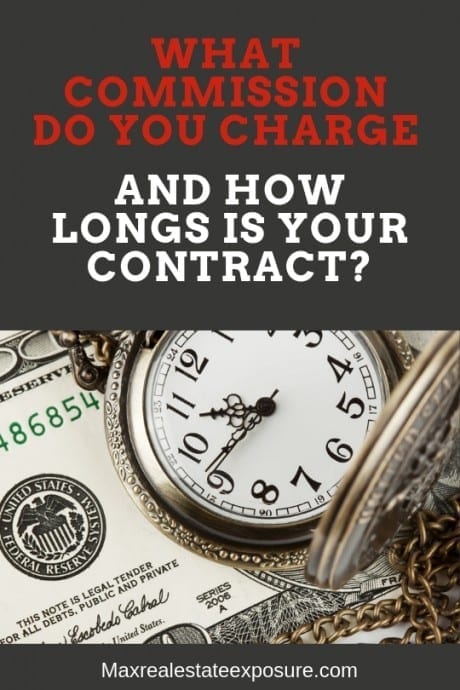Questions to Ask a Realtor Before Signing a Contract
 Do you know the right questions to ask a Realtor?
Do you know the right questions to ask a Realtor?
If you are selling your home, chances are you have some questions.
If you didn’t, that would be very unusual. Selling a home often is the most significant financial transaction any of us has ever made.
There is a lot of money involved, which means you don’t want to mess anything up if you can avoid it.
Home seller mistakes are easy when you’re not educated on the process.
As a long-term Realtor, I have fielded my fair share of questions from sellers.
Here are some of the most common questions Realtors get along with the answers.
Use these frequently asked questions to real estate agents to make sound decisions in a Realtor selection process.
Many sellers have no idea what a Realtor does.
By asking the right questions, you’ll hopefully avoid common home-selling mistakes. Grab a cup of coffee and dig in.
1. How Does The Market Look Right Now?
Undoubtedly, one of the most popular questions to ask a Realtor among consumers is how the real estate market is doing.
Even someone who will not sell a house anytime soon will ask a real estate agent this question.
It’s the kind of thing most homeowners are curious about. After all, for most people, their home is their greatest asset.
Unless you are a professional agent—which, if you were, you wouldn’t have these questions—you are unlikely to have your finger fully on the pulse of the local real estate market.
There are too many factors to be aware of and too many shifting variables to keep track of. Market knowledge is one of the biggest reasons to hire a reputable Realtor.
An excellent listing agent can give you valuable information about the local market. They can also help you understand what that information means to you and your sale.
Your agent should be able to tell you about the current days on the market of homes for sale, market absorption rates, average sale price, and more. In real estate, market knowledge is essential, so be sure to do your homework.
Many sellers will ask a Realtor if it is a buyer’s or seller’s market. Agents who know their market should be able to give a detailed answer.
Exceptional Realtors can quickly snap off the answers to these real estate questions.
2. When Should I Sell My Home?
Another popular question to ask a Realtor is when should I put my home on the market? This is one of my favorite questions from home sellers.
I will answer honestly, while most agents always say, “right now.” It is still easy to spot an agent that gives advice based on what’s best for them.
Of course, you want to sell when you are likely to get the best possible results. But when is that?
The answer is complicated. Generally speaking, the best time to sell is when you are ready. Despite what some agents may try to tell you, there are advantages to selling in every season.
Spring is undoubtedly considered the most ideal in many circles, but that does not mean you can’t get great results in summer, winter, and fall.
You need an agent who knows how to sell year-round. They are out there, so if you want and need to sell in a season that isn’t’ Spring, know that you can do so and be happy with the results.
You can learn tips for selling a house in each year’s season. Whether you are selling in the Spring, summer, fall, or winter, you’ll get some excellent advice for each time frame you might choose to sell your property.
If time is of no consequence, then sure, Spring is probably the best time of year to sell. If I was selling my own home and had no time constraints, that’s when I would do it.
You will likely sell your home faster and for more money in the Spring because there is more buyer demand.
3. How Do I Get My Home Ready to Sell?
 An excellent question for any seller to ask a Realtor is, “what should I do to get my house ready for the market?”
An excellent question for any seller to ask a Realtor is, “what should I do to get my house ready for the market?”
A lot of work must be done before you list your home.
Before allowing buyers to look at your home and ask questions, everything must be done behind the scenes.
That way, when you finally open the doors, you are prepared to make a sale then and there—and you don’t need to do a bunch of stuff you overlooked.
Your agent is the best-qualified person to help you identify what needs to be done before you sell.
Keep in mind that every home is unique, so the advice you get for your home might be different than the information another seller would get.
But staging a home properly is crucial.
That being said, there are some things that almost every seller needs to do. These tasks include the following:
Clean Things Up
No one wants to buy a dirty house. Or, in reality, only bargain seekers will be highly interested in a cluttered, messy home because they assume they can get a great deal from an as-is seller.
You must remove clutter and clean it thoroughly if you want reasonable offers.
Rent Storage Space if Necessary
When selling a home, first impressions and appearance can make or break how much you’ll put in your pocket. It’s wise to declutter your home as much as possible.
A few great ways to do that are having a donation pick-up or renting a storage pod or storage unit.
Make Any Needed Repairs
Broken door handles, missing tiles, stained carpets—there are probably several little jobs that need to be done around your house before you list it.
The more these minor, cheap fixes you make, the more desirable your home will be.
Proper home maintenance shows you care for your property. There may also be big jobs that need to be done.
Wait to talk to your agent before you invest in any major repairs to be sure that doing so will benefit your sale as you expect.
Doing your part before the home is listed for sale is also a side benefit for being ready for the house inspection.
Have Exceptional Photography When These Tasks Are Complete
Taking great pictures is critical to a home sale. The photos on your listing are the first thing most buyers will see. You want them to be good; producing those pictures takes talent and practice.
Your agent should either be skilled at taking real estate pictures or know someone who is. That way, your listing looks as good as possible and shows your home’s best side.
See some great tips for shooting your real estate photos.
4. Can I Use Real Estate Websites to Set The Price For My Home?
No, you can’t. There are several trendy real estate websites out there now that offer pricing options for sellers. They draw on massive databases to give you an idea of your home’s value currently.
While they are undoubtedly helpful for getting a general idea of your home’s value, they are insufficient for house pricing.
Pricing a home to sell reasonably and for the best possible price is both an art and a science. It requires up-to-the-minute market knowledge of what is happening locally and a feel for how your home compares to similar homes in your market.
A website algorithm cannot substitute for a skilled real estate agent.
In my daily life as a real estate agent, I find many homeowners who are under the mistaken belief that what Zillow says their home is worth is the actual value.
No, it is not! The amount they display on their website could be off by tens of thousands of dollars.
When selling a home, you can’t afford to be off your price. It is the most critical factor in selling a home.
5. How Do You Figure Out The Value of My House?
 If you have never sold a house before, this is a great question to ask a real estate agent.
If you have never sold a house before, this is a great question to ask a real estate agent.
What real estate agents and home appraisers do are a bit different. The result, however, is getting to what a buyer will most likely pay for a property.
Both appraisers and real estate agents use comparable sales or “comps” to determine fair market value.
Real Estate agents will perform what’s called a comparative market analysis.
More than likely, the report generated will include the following:
- Closest homes in similarity that have sold close to the property.
- Similar homes are currently under contract but haven’t closed yet.
- Competing properties that are currently for sale at the general price point.
The most important data is what has been sold. The least important is what is currently for sale. The price for these homes can change at a moment’s notice.
You never want to hang your hat on what someone thinks their home is worth.
The analysis that your real estate agent performs will compare your house to other properties that have sold. The evaluation will include the following points of interest.
- The size of the home, or more commonly, what’s referred to as the square footage. While size is a crucial variable, unskilled agents will use this as the end all be all in comping properties. Using square footage to value properties is a surefire recipe for disaster.
- The style of the home – for example, is it a colonial, contemporary, or a raised ranch?
- The number of bedrooms.
- The number of bathrooms.
- The condition of the property.
- The amenities such as central air, central vac, alarm system, sprinkler system, and a whole host of others affect value.
- The age of the house.
- Ages of mechanical and structural components such as roof, heating, and cooling systems.
- The desirability of the lot.
- The appeal of the neighborhood or school district.
6. How Are The List Price and Sale Price Different?
The list price is the price you list the home for sale. It is the reasonable goal you set for your sale, one you hope to get close to as you make the transaction.
The sale price is the price you sell the home for after negotiations. A terrific agent should be able to help you set an asking price that will be close to the sale price.
A word of caution – many less desirable real estate agents will present their market analysis to sellers without giving a seller a list and sale price. Your real estate agent should be setting proper expectations from day one.
The best agents will suggest you list at X with a possible sale price of Y.
One of the essential skills of a real estate agent is accurate pricing. Agents who are worth their salt will be on the money with the price. When no projected sale price is given, it is a question you will need to ask your Realtor.
7. Does Assessed Value Have Anything to do With Market Value?
 This is another common real estate question. The answer is NO! NO! And no!
This is another common real estate question. The answer is NO! NO! And no!
Assessed value has nothing to do with market value.
The assessed value is nothing more than a figure the local municipality uses to collect the appropriate amount of taxes.
Uneducated real estate agents often confuse the public when they say, “come see this absolute steal listed below the assessed value.” Big deal! Don’t be suckered by this kind of nonsense.
Assessed values are used to calculate a property’s tax assessment, and that is it.
8. Should I Price My Home High, So I Have Wiggle Room For Negotiations?
One of the most popular questions a seller will ask a Realtor is about pricing and having negotiating room.
Leaving room for negotiations is one of real estate’s biggest home pricing myths.
There are a lot of unnecessary risks that come from pricing a home too high.
While you may think that you are giving yourself room to negotiate, too high a price is more likely to drive off potential buyers.
The longer you have the home on the market due to a high price, the more stigma that home develops.
If the price is too high, you may not get any offers and be forced to relist the house for a lower price. Many buyers will undoubtedly view your home as a problem home when this happens.
Why else did you have to lower the price?
Instead of pricing high, price right. Work with your agent to find the perfect price.
9. Do You Work Full or Part Time?
An essential question to ask a Realtor before hiring is whether they work full-time. Selling real estate requires hours of dedication at all hours. Do you want someone who is also a bartender?
Someone who needs a second job to make ends meet probably isn’t the best choice when selling your most significant asset.
10. Do You Have References?
Any exceptional Realtor should be able to provide you with a list of references. A better way to phrase the question to a real estate agent is to ask them for their last five sales of people who stayed local.
Don’t let the agent know you are looking for references. Instead, try to find the contact information on your own. If you can find their phone number, give them a call. You will get more honest answers by having an unscreened client.
11. What Commission Do You Charge?
One of the most vital questions to ask a Realtor before signing a contract is their fees.
It would help if you found out what real estate commission the agents you’re interviewing will be charging. You might be thinking that it would be great if you could find an agent who will charge a lower rate than everyone else.
Unfortunately, the commission split matters when you are selling a home. A lower commission often means netting less money, not more.
A buyer’s agent must want to sell your house!
Guess what happens if all the homes you’re competing against have higher commission splits? Fewer agents will want to sell your house.
The bottom line is you will NOT save money. Instead, you will probably net less. Don’t make this foolish home-selling mistake.
12. How Long is Your Contract?
 This one will be vital among the real estate questions to ask a Realtor.
This one will be vital among the real estate questions to ask a Realtor.
Real Estate listing contracts can vary from agent to agent and company to company.
As a general rule, most contracts fall somewhere between three to six months.
You will find that homes in price points that take longer to sell usually have more extended contract periods.
Some agents may guarantee you can escape the contract if unsatisfied. Most, however, do not let you cancel a contract just because the home hasn’t sold.
Getting stuck with a lousy agent is easy when you don’t ask the right interview questions.
13. When Will You Be Doing an Open House?
This one has to be among the most asked questions of Realtors.
Many homeowners think that an open house is an important marketing activity. They are not!
Who can blame a seller when a significant percentage of real estate agents promote them like they are necessary to sell a home?
You see all the open house signs around town and think this must be important. WRONG!
The dirty little secret in real estate is that open houses benefit real estate agents, not home sellers. Any serious buyer is going to schedule a showing with an agent. Open houses do not sell homes.
What they do is bring people into your home that doesn’t belong. Why would you want to have unqualified buyers walking through your door?
Worse yet, why would you want to dramatically increase the odds something will be stolen from your house?
Outstanding real estate agents always discuss the pros and cons of holding an open house.
14. Will You Only be Representing Me in The Transaction?
When hiring a real estate agent, one of the most important questions to get an answer to is whether they will be representing you exclusively.
Some real estate agents practice dual agency, which is illegal in a handful of states and should be made illegal everywhere.
If you allow dual agency in real estate, your agent will become a neutral party. They will no longer be in your corner to get you the best terms and conditions in the sale.
The only person who will benefit from dual agency is the real estate agent, who will collect double the commission.
In dual agency, the real estate agent is incentivized to close the sale whether it benefits you or not. Reject dual agency!
15. What Will You Be Doing to Sell My House?
Another critical question is finding out precisely what your real estate agent will do to sell your house. Not asking a Realtor this question could lead to awful results.
Every real estate agent has a broad range of services they offer. Some agents do an exceptional job at marketing and others who little to nothing but list in the multiple listing service (MLS).
Hiring the post and pray real estate agent will usually lead to a lack of success.
You want a comprehensive real estate marketing plan to sell a home quickly for the most money. Accept nothing less.
16. Do You Have Contractors You Can Recommend For Work Needed on The House?
 A real estate agent wears many hats in a sale. Any agent who has been in the business for a while will have a list of contractors to help prepare for a home sale.
A real estate agent wears many hats in a sale. Any agent who has been in the business for a while will have a list of contractors to help prepare for a home sale.
It is not uncommon for real estate agents to refer sellers to many different vendors, including:
- Painters
- General carpenters or handymen
- Electricians or plumbers
- Home Stagers
This is an essential question to ask a Realtor because you’ll be best served by an agent who can help you get the most money for your home.
17. What Should I Do to Prepare For Showings?
The buyer’s first impression is one of the most crucial aspects of selling a home.
You can do some simple things to ensure the buyer feels good about your house. These include the following:
- Making sure the home is clean and tidy. Removing all excess clutter is essential. You want the house to feel as spacious as possible.
- Make sure all the curtains are drawn, and the home receives good natural sunlight.
- Turn on lights in any areas of the home that could use a bit of additional light.
Here are some additional home-viewing tips that are worth reading.
18. Will You Be Accompanying The Showing?
One of the more typical questions a real estate agent will be asked whether they will be at the showing.
It is advisable not to have the listing agent present during a showing. Buyers and their agents want to be able to speak freely during a showing.
They don’t want a seller’s agent hovering around. Keep in mind that having your agent present will not make one difference. Real Estate agents do not talk people into buying homes.
Additionally, if your real estate agent has all the time in the world to be at every viewing, you haven’t hired the best agent.
Sellers also ask if they can be present for showings – the answer is NO. It would be best if you were not around. Let the buyer walk through unencumbered.
19. Will You Be Representing Me at The Home Inspection?
A percentage of real estate agents try to get away with doing as little as possible during a real estate transaction. The home inspection is a milestone your real estate agent should be attending.
They will be there to observe and listen. The inspection is for the buyer’s benefit. However, that doesn’t mean your agent shouldn’t be there.
Home inspectors and buyers often exaggerate home inspection issues are not unusual. What’s said in person by a home inspector often differs from what is in the inspection report.
The home inspection report can be a big CYA that makes every minor issue look like the house is a lemon.
Proper representation means understanding how big or small the issues are.
20. How Much Do I Have to Disclose to Buyers?
When selling your home, honesty is generally the best policy. There are several reasons for the honest approach.
First, your state likely has real estate disclosure laws that require you to report any significant issues you know about with the home—especially if you are asked about those issues.
It’s essential to ask your agent about disclosure in your state.
In some locations, it is caveat emptor or “let the buyer beware.” This means you don’t have to disclose problems, but you do need to answer questions honestly.
In states where disclosure is mandatory, you avoid the risk of a potential lawsuit by disclosing known issues. If you were not to reveal a problem to a buyer, that buyer could come back after the sale and sue you for failure to disclose.
If your property is stigmatized, you may want to consider disclosure. Buyers may find out anyway.
One thing you should keep in mind about disclosure: Disclosure laws in real estate generally require you to answer questions honestly about significant issues—not to give a laundry list of minor problems to every possible buyer.
You may not like how your garbage disposal works. That doesn’t mean you have to share your feelings about not functioning optimally.
You can go overboard with telling buyers about problems. If you have a question about an issue and disclosing that issue, ask your agent. Your Realtor can give you targeted advice to protect you and your sale.
21. How Will You Be Communicating With Me?
Communication procedures are a crucial question to ask real estate agents. One of the most vital things when hiring a real estate agent is proper communication.
The agent you hire should ask how you prefer to keep in touch, whether through email, text, or an old fashion phone call.
The agent should be flexible enough to accommodate whatever mode of communication you prefer.
Another essential question to ask Realtors is if you will receive feedback after showings.
You want to know what the buyer thought about your home, right? Skilled agents have systems in place, so they provide feedback after showings.
22. How Do You Handle Offers?
The best scenario for any seller is to have multiple offers on their home. A bidding war is not uncommon in a strong seller’s market. Speaking with your agent about how to deal with various offer scenarios is crucial.
Sometimes the best offer isn’t the highest offer. Keep that in mind.
For example, if the highest bidder has a home sale contingency. A home sale contingency is something you want to avoid most of the time.
There also could be other real estate contingencies that make one offer attractive over another. A strategy should be in place to obtain the best terms and conditions.
It may warrant asking all parties to come back with their “best and final” offer.
23. What Happens if My Home Doesn’t Appraise?
One of the things that can happen when you have multiple offers is your home sells for too much. The appraiser is unable to justify the price based on comparable sales data. There becomes an appraisal gap.
Of course, there are times when an appraiser comes in low, which isn’t justified.
You’ll need to know how to appeal the appraisal in such cases. There are usually a couple of scenarios that rectify a low appraisal, including the following:
- You challenge the evaluation, and it’s adjusted.
- The buyer makes up the difference by coming up with additional deposit funds.
- The worst case – you lower your price.
- A compromise – you lower the price, and the buyer comes up with a larger down payment satisfying the lender.
24. Can You Help Me With Finding a Moving Company?
One of the more vital tasks when selling a home will be finding one of the best moving companies. If you are moving out of state, you will want a top-notch mover. It would help if you asked the real estate agents you’re interviewing whether they can provide you with references.
If you have expensive cars that need to be transported across the country, you should also ask the real estate agent if they know of any good car shipping companies.
25. What Are The Additional Costs to Sell My Home Beside The Commission?
A vital question to ask a real estate agent when selling is a breakdown of all the costs. The closing costs for a seller differ from a buyer.
Some significant expenses will be real estate tax stamps and hiring a real estate attorney for contract review. Sellers should always have a handle on their costs, so there are no surprises right before the closing.
Final Thoughts on Questions to Ask a Realtor
As a home seller, asking your real estate agent these questions is vital. Homeowners who are educated about selling usually have the least amount of problems in a sale. Be sure to hire an agent who will exceed your expectations.
So many sellers make mistakes choosing an agent. Have a set of real estate agent interview questions ready. By asking the right questions, you’ll improve your odds of working with an agent you love.
Never underestimate the importance of asking a Realtor lots of questions. Hopefully, this information has provided additional food for thought when selling your home.
Additional Helpful Home Selling Resources
- What renovations offer good ROI – see which improvements you can make before selling your home that will provide a safe return.
- How should I handle bids on my house – is there a right or wrong way to handle offers? There are excellent practices of a real estate agent when negotiating. See some solid tips.
- Tips to get my house ready for the market – take a look at some great advice regarding being prepared to list your home for sale.
Use these additional articles to get more helpful advice when selling your home.
About the Author: The above Real Estate information on the questions to ask a Realtor was provided by Bill Gassett, a Nationally recognized leader in his field. Bill can be reached via email at billgassett@remaxexec.com or by phone at 508-625-0191. Bill has helped people move in and out of many Metrowest towns for the last 37+ years.
Are you thinking of selling your home? I am passionate about real estate and love sharing my marketing expertise!
I service Real Estate Sales in the following Metrowest MA towns: Ashland, Bellingham, Douglas, Framingham, Franklin, Grafton, Holliston, Hopkinton, Hopedale, Medway, Mendon, Milford, Millbury, Millville, Natick, Northborough, Northbridge, Shrewsbury, Southborough, Sutton, Wayland, Westborough, Whitinsville, Worcester, Upton, and Uxbridge MA.


This is article interesting. Thank you for sharing!